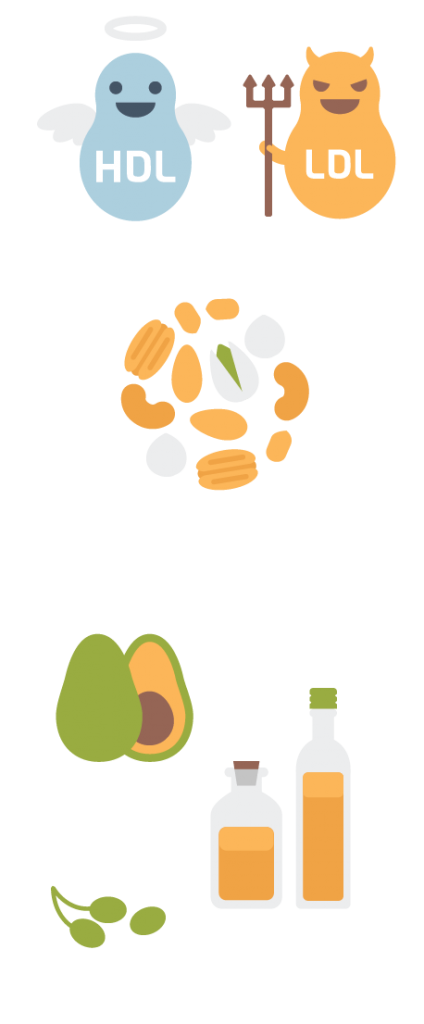With so many numbers, terms and constantly-evolving discoveries, it can be difficult to understand and properly manage your health. Between changing doctors and switching insurance plans, it’s important to understand what a blood test can reveal so that you can stay on top of what it means to be healthy.

More than 70% of all of the critical information about your health can be revealed in a blood test. It’s important to understand your results both to stay healthy as well as treat any ailments that you may have.
Heart Health

Heart attacks and heart disease are the leading cause of death for adults in the United States, responsible for 1 in 4 deaths in this country. Two out of every five people who have a heart attack do not survive.
Cholesterol
The term cholesterol refers to a number of special molecules known as lipoproteins, not all of which are harmful.
HDL Cholesterol
Known as the “good cholesterol”, these high-density lipoproteins keep your heart healthy.
Foods that have lots of good HDL: nuts, seeds, oatmeal and fish.
LDL Cholesterol
Known as the “bad cholesterol”, a high level of these low-density lipoproteins can lead to heart disease, hardening of the arteries and strokes.
Foods that contribute to high LDL levels: breads, pasta, sugar, cheese and fried foods.
Cholesterol Ratios
One thing your doctor will look for is the ratio between your HDL and LDL levels, as well as understanding other sub-particles like Apo-B and ILP(a). These numbers can help your doctor assess your risk of suffering a heart attack or stroke.

Triglycerides:
Also known as dietary fat, high amounts of triglycerides can lead to diabetes and heart disease. Contributing factors to high triglyceride levels: being overweight, smoking cigarettes, drinking alcohol and eating a lot of processed carbohydrates
Inflammation:
When organs and cell tissues become irritated and inflamed, this can contribute to serious illnesses like cancer, auto-immune diseases, dementia and heart disease. Reducing inflammation is a smart way to stay healthy. Certain proteins like hs-CRP can indicate that there is an issue with inflammation.
Foods that help reduce inflammation: oranges, green tea, blueberries, salmon, papayas, olive oil, sweet potatoes and broccoli.
Thyroid:
Experts estimate that 1 person in 8 in the United States suffers from thyroid disease, although many cases go undiagnosed. Problems with the thyroid can lead to obesity and chronic fatigue. A condition known as hypothyroidism is when the thyroid gland fails to make enough hormones to maintain a healthy metabolism.
Hypothyroidism can lead to: higher cholesterol levels, obesity, heart disease, greater susceptibility to colds, and low energy levels.
Vitamin D
This vitamin is absolutely critical for health and yet approximately 3 out of 4 Americans do not spend enough time outside in order to produce a sufficient level of vitamin D in their bodies. Low vitamin D levels can lead to heart disease, cancer, bone diseases, and infections.
Consuming fish oil will help your body make more vitamin D.

